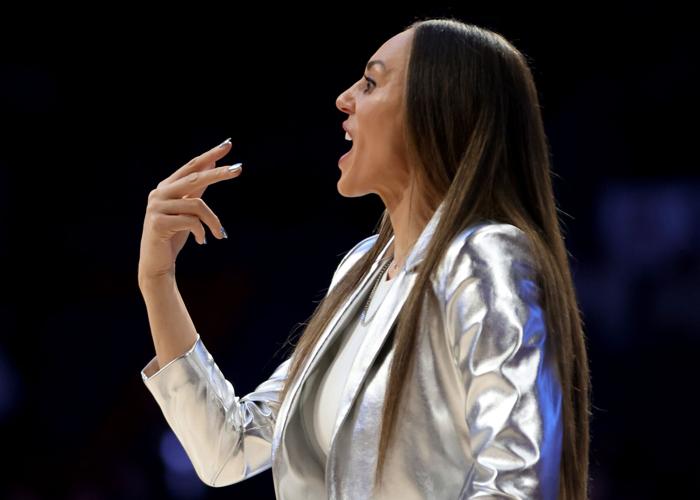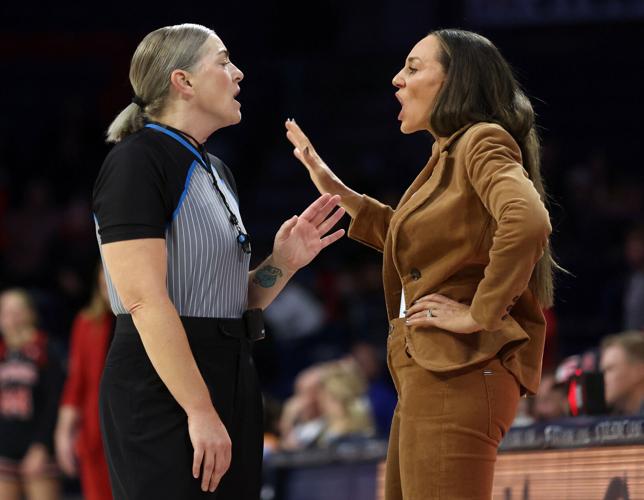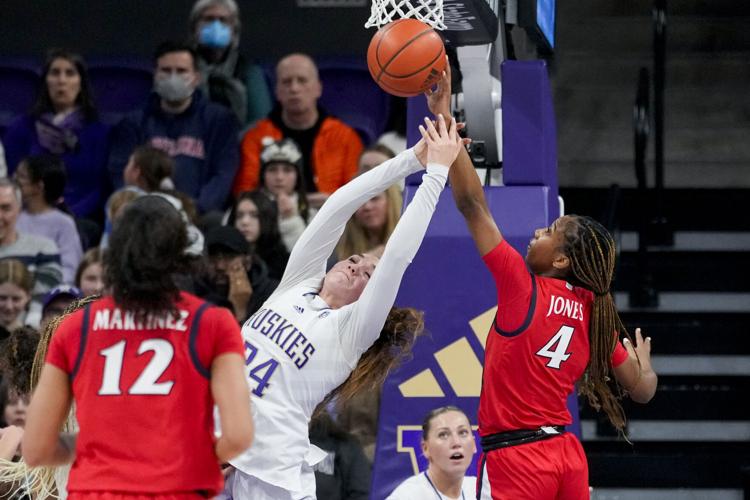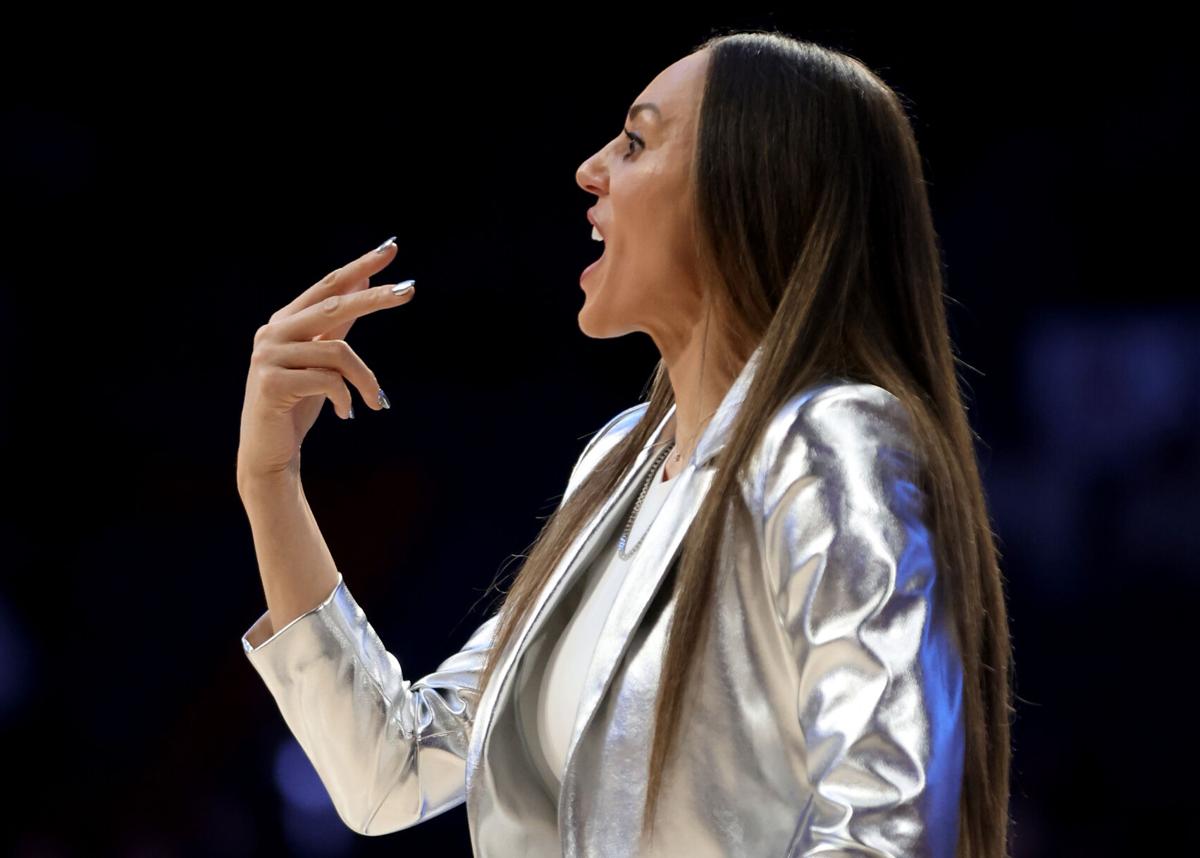Talk about adding insult to injuries.
The banged-up, shorthanded, eight-player Arizona women’s basketball team had to play back-to-back weekends at the Oregon and Washington schools earlier this month. “Travel partner” ASU did as well.

Michael Lev is a senior writer/columnist for the Arizona Daily Star, Tucson.com and The Wildcaster.
Tucson to the Pacific Northwest, and vice versa, is the longest trip in the Pac-12 Conference. Do you know how many times the Wildcats have had to do that on consecutive weekends since the league officially sanctioned women’s sports in 1986?
Try never.
Oh, the UA has played four consecutive road games several times. But never that specific combination. The farthest outposts possible.
It was unprecedented, unfair and unnecessary.
Scheduling is a thankless job, a tedious task. As UA coach Adia Barnes put it: “I don’t do scheduling. I wouldn’t want to.”
But once the schedule comes out, we all love to complain about it.
This particular grievance is warranted.
Even though the Pac-12 is dissolving and its employees are scrambling to find new opportunities, the league has an obligation to do right by its student-athletes. Sending Arizona and ASU to the Oregon and Washington schools on back-to-back weekends was wrong.
They’re not alone.
Colorado and Utah are making those same trips on consecutive weekends starting this Friday, when Arizona hosts Cal in the first of three straight home games. Boulder to Seattle requires more than a puddle-jumper (1,022 miles). Salt Lake to Seattle isn’t nearly as bad (700). Tucson to Seattle (1,216) is literally the longest trip you can make within the Pac-12 footprint.
Couldn’t someone have looked at the “final” version of the conference schedule and said, “Wait a minute, this isn’t right”? Couldn’t someone have moved some pieces around to make the schedule more manageable?
“We try to minimize back-to-back road weekends,” Pac-12 associate commissioner Rhonda Lundin Bennett said via email when I reached out to the league about this issue. “But with our scheduling parameters, there are always going to be schools that have to play four consecutive road games. Beyond the scheduling parameters, we also have to deal with facility conflicts at arenas, which can cause challenges.

Arizona coach Adia Barnes has some words with a referee in the second half f the Wildcats' game against Utah at McKale Center on Jan. 7, 2024. Arizona won in overtime 71-70.
“We do track back-to-back road weekends historically and try to avoid schools having to do it in back-to-back years. We had six schools with four consecutive road games last year and four this year, so it is not usual. Arizona hasn’t had to do it in several years, while other schools have.”
Arizona didn’t face more than two straight road games last season. The year before, the Wildcats had one stretch with three away games in a row. The latter two were at Oregon State and Oregon. The first was at USC. That’s the shortest trip aside from ASU.
Arizona was scheduled to play four consecutive road games in January/February of 2021. The first three were canceled due to COVID protocols. But even in that case, the first trip was to L.A., the second to the Oregon schools. Ideal? No. Manageable? Sure.
Barnes seemed happy to be home when she met with the media Wednesday at McKale Center. “We can unpack our bags,” she noted.
The team did return home between the Oregon and Washington trips, albeit a day late because of weather. No consideration was given to staying in the Pacific Northwest in between. Too much school would have been missed.
Not surprisingly, with their depleted roster, the Wildcats ran out of steam in the fourth of those four games. After battling to the buzzer in the first three contests — all losses, decided by a total of seven points — Arizona got outscored 44-26 in the second half of a 78-57 setback at Washington State.
“I think we just hit a wall,” freshman wing Skylar Jones said.
Winning on the road is hard; road teams are 11-29 in Pac-12 play entering Friday night’s slate.

Washington guard Elle Ladine (24) reaches back for the ball at her team's basket against Arizona guard Skylar Jones (4) during the first half of their game, Friday, Jan. 19, 2024, in Seattle.
Winning with eight players after traveling thousands of miles on back-to-back weekends in the dead of winter?
“I just knew it wasn’t gonna be easy,” Barnes said. “I knew there was the potential of going 0-4 in that stretch.”
It’s the first time the Wildcats have lost four straight games since late in the 2018-19 season (which ended with them winning the WNIT).
Although the women’s basketball team flies by charter now — and Barnes has scaled back on-court practice time because the roster is so small — Jones said she was still feeling the effects Wednesday.
“I’ve never really endured anything like that before,” she said. “I’ve never been gone two weeks straight, out of town playing games, almost back-to-back. So my body is really feeling it. ... My body is experiencing a different type of pain.”
Jones and her fellow student-athletes are younger than most of us. They’re more gifted than almost all of us. But travel still takes a toll. The idea that student-athletes from USC, UCLA, Oregon and Washington won’t experience “a different type of pain” when they’re regularly traveling to the Midwest for Big Ten games is laughable. Except it isn’t funny.
“It’s a lot physically and mentally,” Jones said. “I fly from Chicago to Tucson all the time, and that’s a far flight. (Jones is from Chicago.) So I know that’s going to take a toll on them for sure.”
If you think the Pac-12 schedule is wacky, just wait until Arizona joins the Big 12 next season. Welcome to the Wild, Wild Midwest.
The Big 12 doesn’t have “travel partners” — at least not yet. Barnes actually prefers that.
“When you’re a mom and you have a family, it’s way better because you come back,” Barnes said. “So I am kind of looking forward to that.”
I looked at Texas Tech’s schedule this season since TTU is closest geographically to the UA among current Big 12 members. Every conference game but one is on a Wednesday or Saturday. The Red Raiders have three sets of consecutive road games: at Oklahoma State and Oklahoma (Jan. 10-13), at Cincinnati and West Virginia (Feb. 3-6) and at Baylor and Texas (Feb. 18-21).
The TTU-WVU game is the only one that’s on a Tuesday and creates the closest thing to a Pac-12 double-dip. I can’t imagine the Red Raiders will come home in between. The other back-to-back road games at least afford that possibility.
Arizona did catch some breaks this season. The Wildcats’ first weekend set in league play was at home for the first time since 2020. They also don’t have to visit the Mountain schools, Colorado and Utah, at all.
Although she has no interest in scheduling conference games, Barnes was willing to imagine a world in which she did.
“It would be way different” she said. “If I did it we’d never go to the Mountains. I would open up at home. And I would pick the teams that we open up at home with.
“We have input. Like, ‘Do we agree?’ But usually you can’t really disagree.”
Arizona Women's Basketball Press Conference | Adia Barnes | Jan. 24, 2024 (Arizona Wildcats YouTube)








